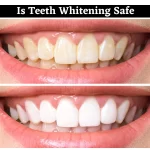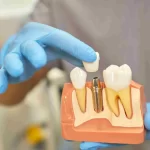Dental procedures have long been viewed as one of the costliest treatments one may have to undergo. However, ensuring the health of your teeth is as essential as taking care of the rest of your body. This is where dental insurance plans come into play. The coverage offered by dental insurance plans makes most dental treatments an affordable option, which means patients no longer need to compromise on their oral health.
How Does Dental Insurance Work?
The main aim of a dental insurance plan is to reduce the cost of dental care and make different types of dental treatments affordable to all those who avail these services. The coverage offered by dental insurance plans can mainly be divided into three categories:
- All preventive dental care is covered 100% by these insurance plans. These include regular check-ups, X-rays and routine professional cleanings.
- Basic dental care includes simple tooth extractions, cavity restorations or fillings, and deep cleaning procedures. Dental insurance usually covers around 80% of the cost of these services.
- All other dental treatments like root canal treatments, dental crowns, bridges, and dentures count as major services. Only about 50% of the cost of such services is usually covered by dental insurance.
There are generally two ways to avail dental coverage:
Health Insurance Plans with Dental Coverage: When looking up dental health insurance options for your family and yourself, it may be a good idea to find out whether the insurance plan of your choice offers dental coverage as well. The premium you pay for these plans will include both medical and dental insurance coverage.
Independent Dental Insurance: These are stand-alone insurance plans intended solely for dental coverage. These would require a separate premium payment if you already have another medical insurance plan.
Services Not Covered by Dental Insurance
- When reviewing insurance plans, look for clauses that cover ‘missing tooth replacements’. Some treatments aimed at replacing missing teeth may not be covered by your dental plan, especially if it is for a tooth lost before you took the plan or for a treatment already in progress.
- Dental implants are usually not covered by dental insurance plans. This is because dental implants are the costliest means of tooth replacement and there are always cheaper ways to do so. However, it never hurts to inquire before you choose since some newer plans have started coverage for dental implants, as well.
- Cosmetic dentistry procedures like teeth-whitening fall under elective procedures and hence, are usually not covered by dental insurance plans.
- Orthodontic treatments, which predominantly consist of braces, might be covered by some dental insurances. Be sure to confirm the annual lifetime coverage limit for orthodontics after getting an estimate for the treatment from your dentist.
Alternatives to Traditional Dental Insurance Plans
An affordable and flexible alternative to dental insurance is ‘dental savings plans’. Also known as ‘dental discount plans’, patients can avail discounts of 10-60% on dental procedures by being members of these plans. It’s like being a part of a club where only the members get to avail the discounts. There are several benefits of dental savings plan over traditional dental insurance plans –
- Dental insurance coverage takes around 6-12 months to activate. In contrast, dental savings plans activate within a maximum of 72 hours. This will allow you to go ahead with that root canal treatment or dental crown you have been putting off without needing to wait for your insurance plan to kick in.
- In case of a dental emergency, getting a dental savings plan that activates within 24 hours can get you critical dental care at short notice minus the massive bill.
- One of the main features of being a member of a dental savings plan is being able to avail services only from dentists participating in the plan. Patients get to gain access to a nationwide network of dentists. Moreover, most dental plans pre-screen dentists before they are accepted into the network. This means you get access to not just affordable dental care, but also quality-assured dental care.

















